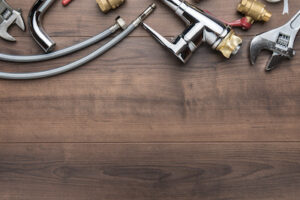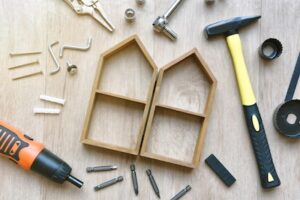Comprehensive Beginner’s Guide to Maintaining Your First Home
Owning your first home is an exciting milestone, but it also comes with a great deal of responsibility. One of the most important aspects of homeownership is proper maintenance. Regular maintenance ensures that your home remains in good condition, helps prevent costly repairs down the line, and preserves its value. In this beginner’s guide to maintaining your first home, we will provide you with valuable tips and insights to help you navigate this journey successfully.
Beginner’s Guide to Maintaining Your First Home
1. Create a Maintenance Schedule
One of the first steps in maintaining your first home is to create a comprehensive maintenance schedule. This schedule will act as your roadmap, outlining all the tasks you need to perform and when to perform them. Consider using digital tools or apps to set reminders for various maintenance activities, such as changing air filters, testing smoke detectors, or scheduling professional inspections.
2. Plumbing Maintenance
Water is fed into your house at high pressure and leaks are common, which is a time to call an experienced plumber who can resolve the issue. Water can damage a property, so you do need to inspect every room regularly and should you find a damp area, call in a small builder to repair the damage.
Understanding the basics of plumbing maintenance can save you from costly water damage. Here are a few essential tips:
- Check for leaks: Regularly inspect faucets, pipes, and toilets for any signs of leaks. Fixing leaks promptly can prevent water damage and conserve water.
- Clean drains: Keep your drains clear by using natural remedies like a mixture of vinegar and baking soda. Avoid pouring harsh chemicals down the drain, as they can damage your pipes.
- Insulate pipes: In colder climates, insulate exposed pipes to prevent them from freezing and potentially bursting. This is especially important during winter months.
- Know the location of the main shut-off valve: Familiarize yourself with the location of the main shut-off valve for your water supply. In case of emergencies, you can quickly shut off the water to prevent further damage.

3. Regularly Inspect and Clean Gutters
Gutters play a crucial role in directing rainwater away from your home’s foundation. Over time, leaves, twigs, and debris can accumulate in the gutters, leading to clogs and potential water damage. Regularly inspect and clean your gutters to ensure they are free from obstructions. Consider installing gutter guards to minimize debris buildup.
4. Check and Replace HVAC Filters
A well-functioning HVAC (Heating, Ventilation, and Air Conditioning) system is essential for maintaining a comfortable living environment. HVAC filters trap dust, dirt, and allergens, but they can become clogged over time. Check your HVAC filters monthly and replace them as needed to maintain efficient airflow and improve indoor air quality.
5. Maintain Proper Insulation
Proper insulation helps regulate indoor temperature and energy consumption. Check the insulation in your attic, walls, and basement to ensure it is in good condition. Replace or add insulation as necessary, focusing on areas that may lack adequate coverage.
6. Test Smoke and Carbon Monoxide Detectors
Smoke and carbon monoxide detectors are critical for ensuring the safety of your home. Test these detectors regularly to ensure they are functioning correctly. Replace batteries annually or as needed. It’s better to be safe than sorry when it comes to protecting your loved ones.
7. Seal Windows and Doors
Air leaks around windows and doors can lead to energy loss and drafts. Check the seals and weatherstripping around your windows and doors and replace them if damaged or worn out. Proper sealing helps maintain a comfortable indoor temperature and reduces energy costs.
8. Roof Maintenance
The roof is the most important component of your house, as it protects the building from the harsh elements of nature and as you cannot see the majority of the roof, you should ask a local roofing contractor to inspect the roof every 6 months. Depending on your area’s climate, it can cause damage to the roof; high winds can cause tiles to lift from the roof, which is not something you want to happen.
9. Maintain the Exterior
The exterior of your home requires regular attention to keep it in good condition. Perform routine inspections and address any issues promptly. Some exterior maintenance tasks include:
- Inspecting and repairing siding: Check for cracks, loose panels, or signs of water damage. Repair or replace damaged siding to prevent further issues.
- Cleaning and maintaining the roof: Clear debris from gutters and inspect the roof for damaged or missing shingles. Schedule professional roof inspections to identify any potential problems.
- Caring for the landscaping: Trim trees and shrubs, mow the lawn, and remove weeds regularly. Adequate landscaping maintenance enhances your home’s curb appeal.
- Maintaining the driveway and walkways: Repair any cracks or potholes in your driveway or walkways to prevent accidents and ensure smooth surfaces.
Whether concrete or brick, the exterior of a building will erode over time and remedial work will be required eventually. Regular inspections are recommended, which should reveal any minor issues and they can be repaired before causing too much damage.
10. Electrical System Maintenance
Maintaining the electrical system in your home is crucial for safety and functionality. Here are some tips to follow:
- Replace faulty wiring: If you notice flickering lights, frequent circuit tripping, or other electrical issues, consult a professional electrician. Faulty wiring can lead to fire hazards and should be addressed promptly.
- Test GFCI outlets: Ground Fault Circuit Interrupter (GFCI) outlets are designed to protect against electrical shocks. Test GFCI outlets regularly by pressing the “test” and “reset” buttons to ensure they are functioning correctly.
- Avoid overloading circuits: Do not overload electrical circuits with too many appliances or devices. Spread out electrical usage across different outlets to prevent tripped breakers or electrical malfunctions.
11. Appliance Maintenance
Regular maintenance of your appliances can extend their lifespan and improve their efficiency. Consider the following tips:
- Clean refrigerator coils: Dust and debris can accumulate on the coils behind your refrigerator, reducing its efficiency. Vacuum the coils periodically to keep them clean and ensure proper cooling.
- Clean dryer vents: Lint buildup in dryer vents can pose a fire hazard. Clean the lint trap after each use and periodically clean the vent system to prevent blockages.
- Service the HVAC system: Schedule professional maintenance for your HVAC system at least once a year. This includes cleaning the system, inspecting components, and checking for any potential issues.
- Clean dishwasher filters: Remove and clean the filters in your dishwasher regularly to prevent clogs and ensure optimal cleaning performance.
12. Take Proper Pest Management Steps
Protecting your first home from pests is crucial for its maintenance. Identify common problems, conduct regular inspections, and seal entry points to prevent infestations. Maintain cleanliness, both indoors and outdoors, and consult professionals if needed. By implementing these proactive measures, you can ensure a pest-free environment and preserve the integrity of your home.

Why is Home Maintenance Important?
Before diving into the specifics of home maintenance, let’s understand why it is crucial. Proper home maintenance offers several benefits:
- Preservation of Home Value: Regular upkeep and maintenance help maintain and potentially increase your home’s value over time.
- Prevention of Costly Repairs: Small maintenance tasks can prevent minor issues from escalating into major repairs that can strain your budget.
- Safety and Comfort: Regularly maintaining your home ensures it remains a safe and comfortable living environment for you and your family.
- Longevity of Home Systems: Proper maintenance extends the lifespan of your home’s systems and appliances, saving you money in the long run.
Conclusion
Maintaining your first home may seem overwhelming at first, but with proper planning and regular upkeep, you can ensure a safe, comfortable, and valuable living environment. By following this beginner’s guide to maintaining your first home, you’ll be equipped with the knowledge and tools necessary to tackle essential maintenance tasks and keep your home in excellent condition for years to come.
Remember, consistency is key. Create a maintenance schedule, address issues promptly, and seek professional assistance when needed. With dedication and proactive care, you can enjoy the rewards of homeownership while protecting your investment.
